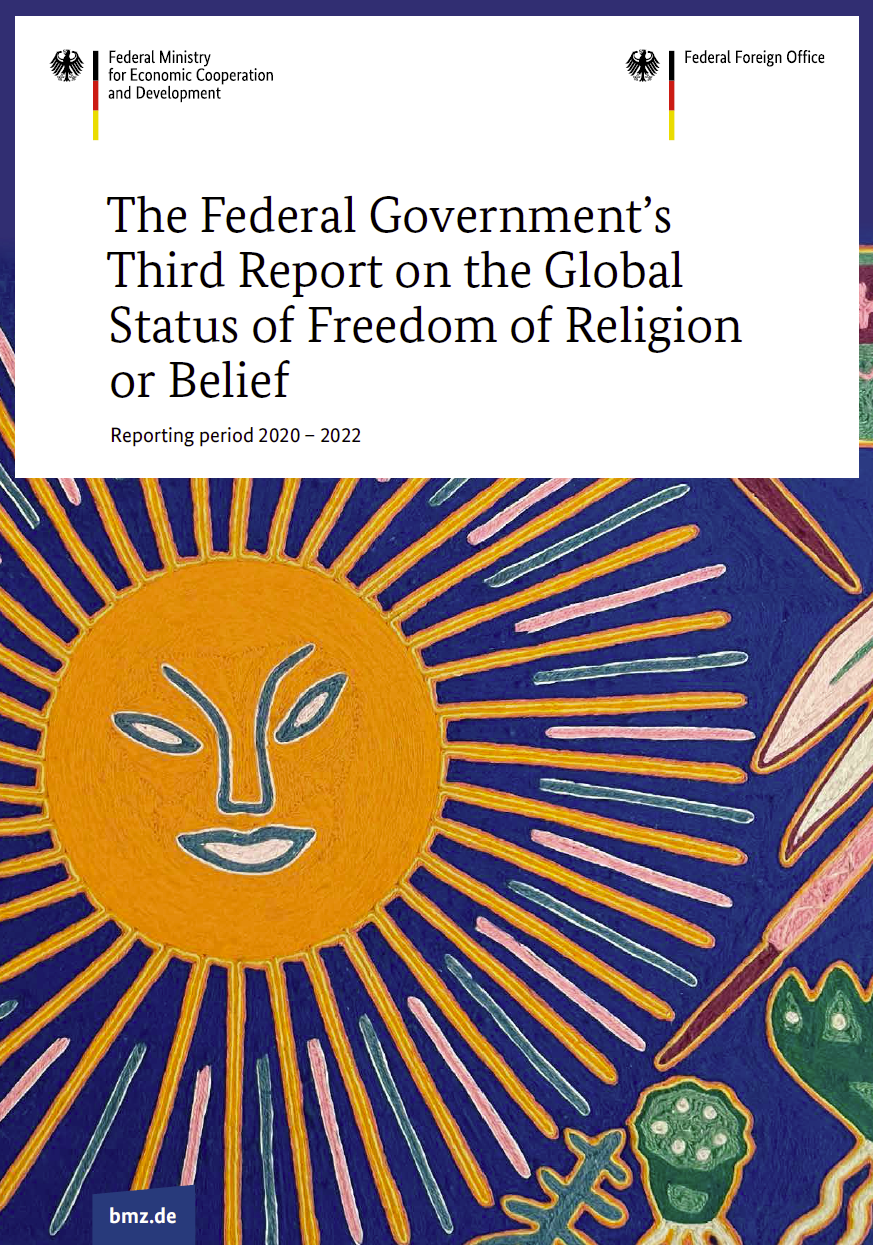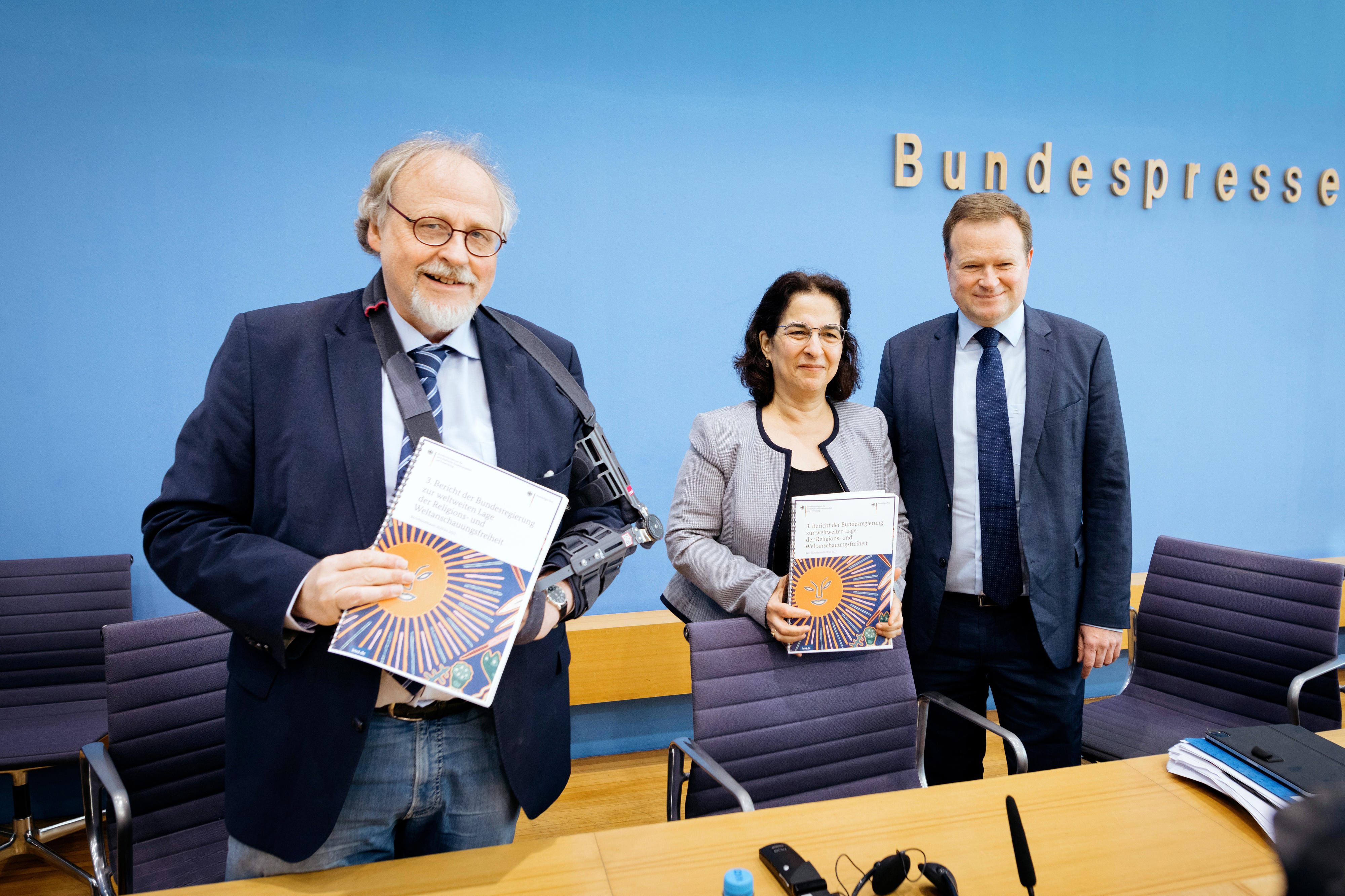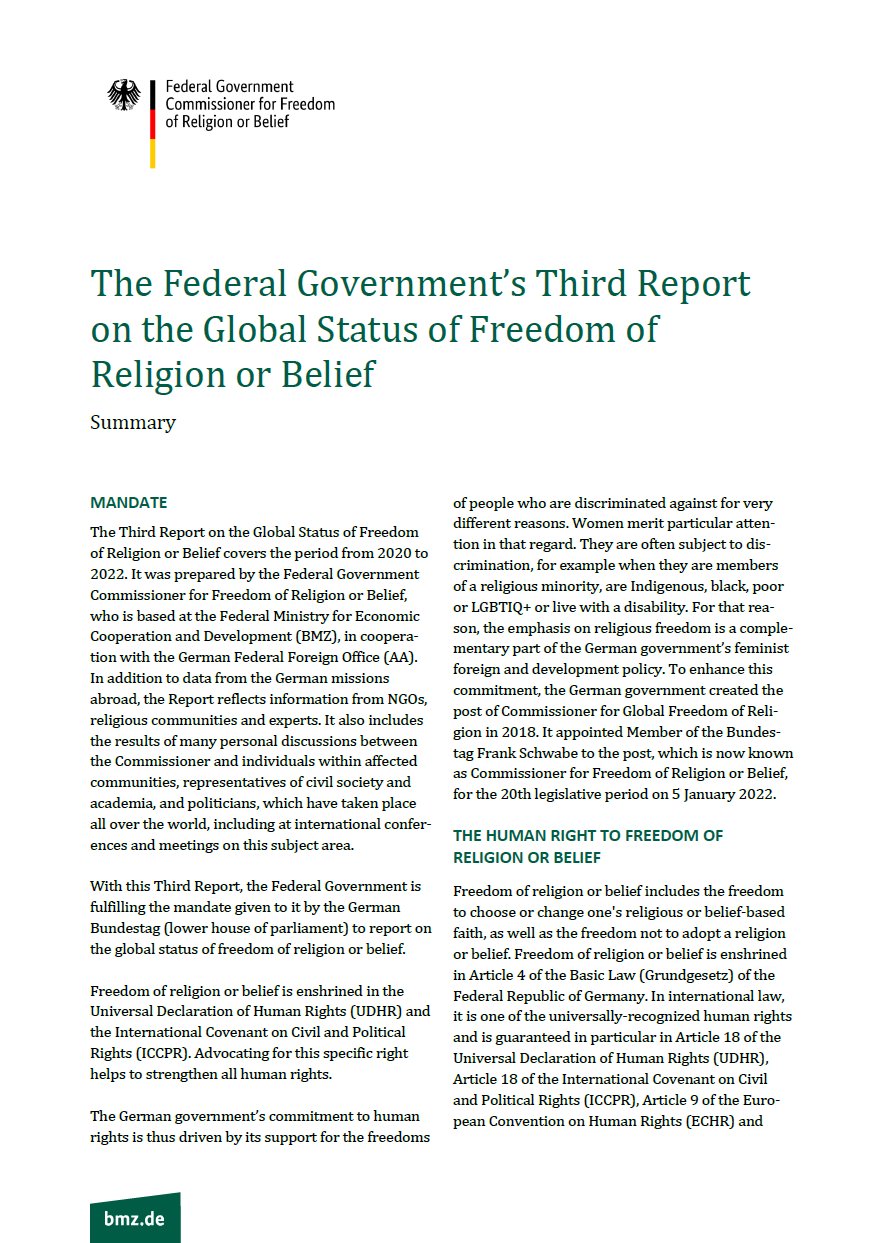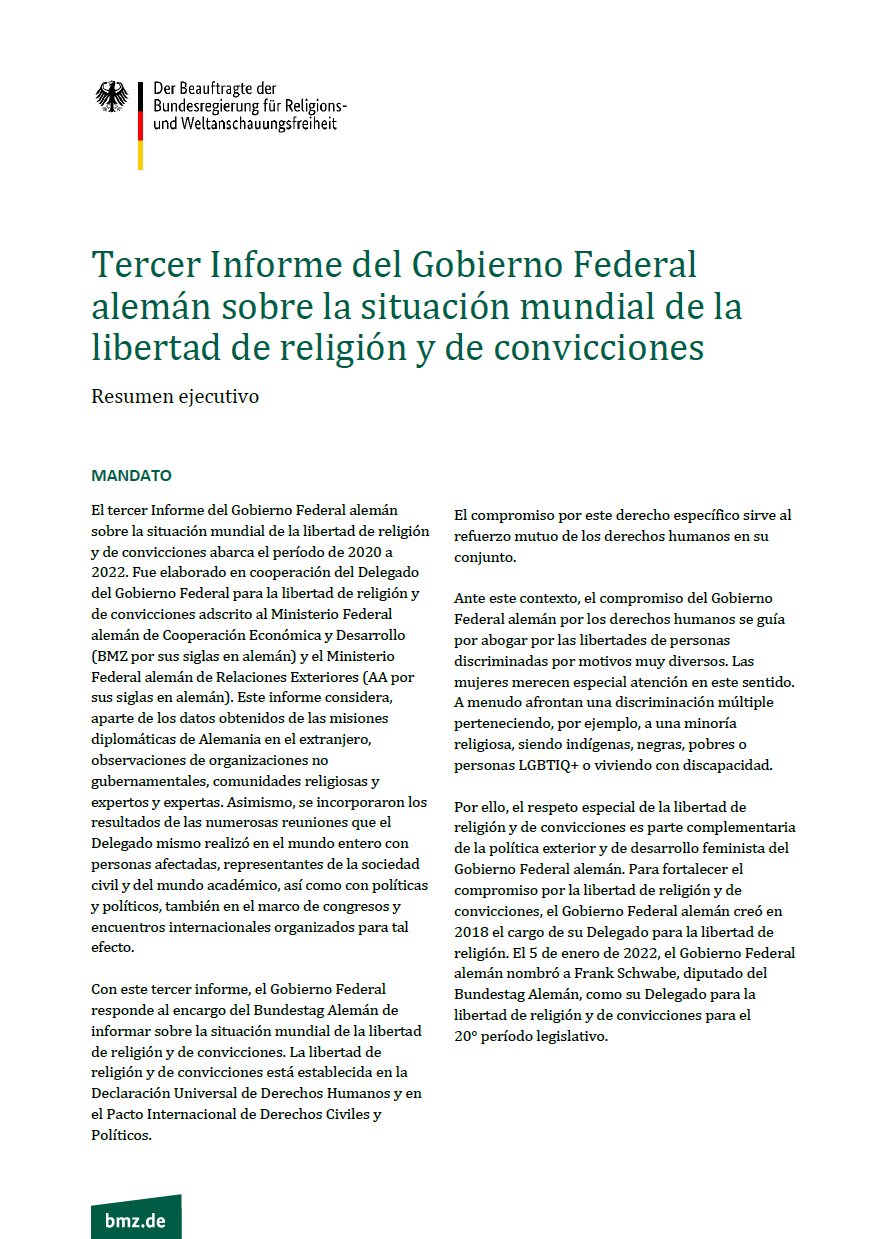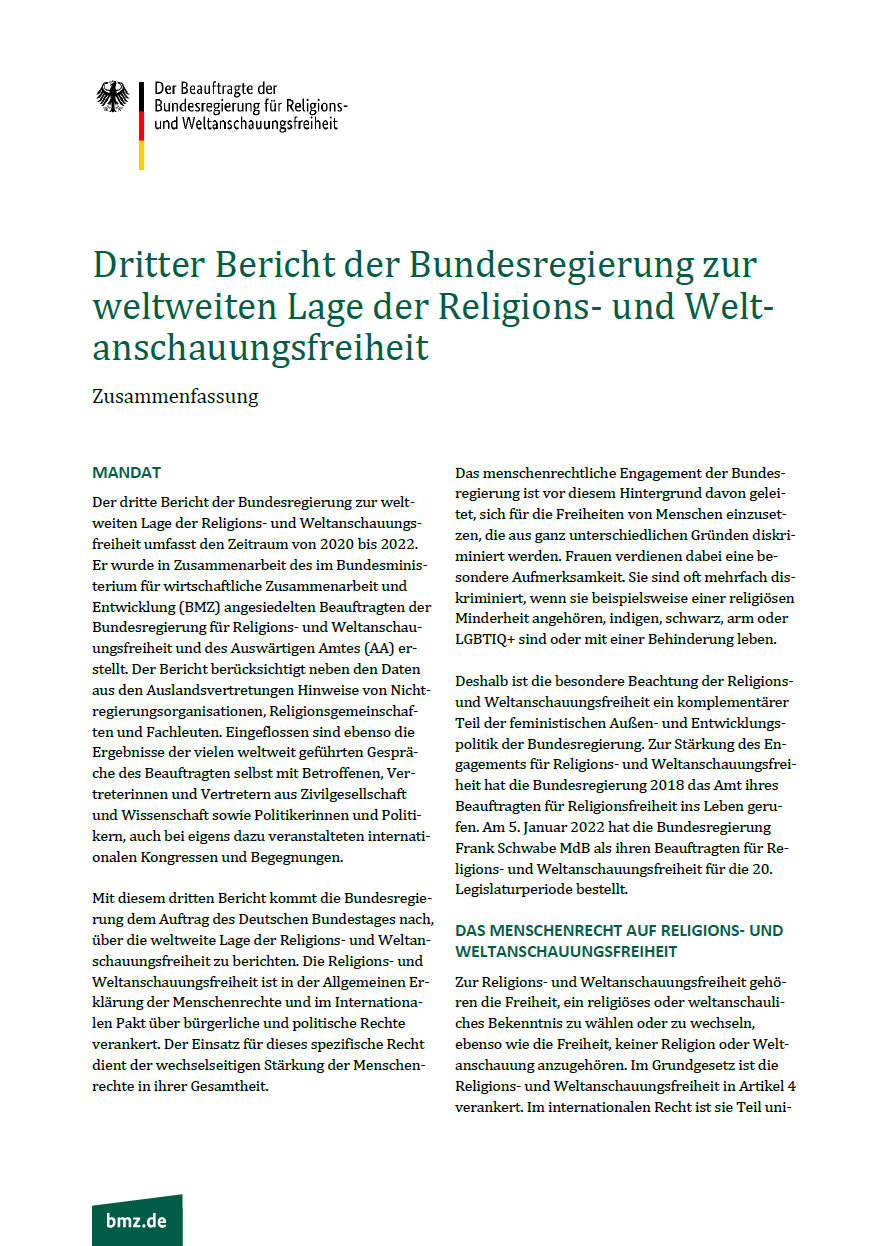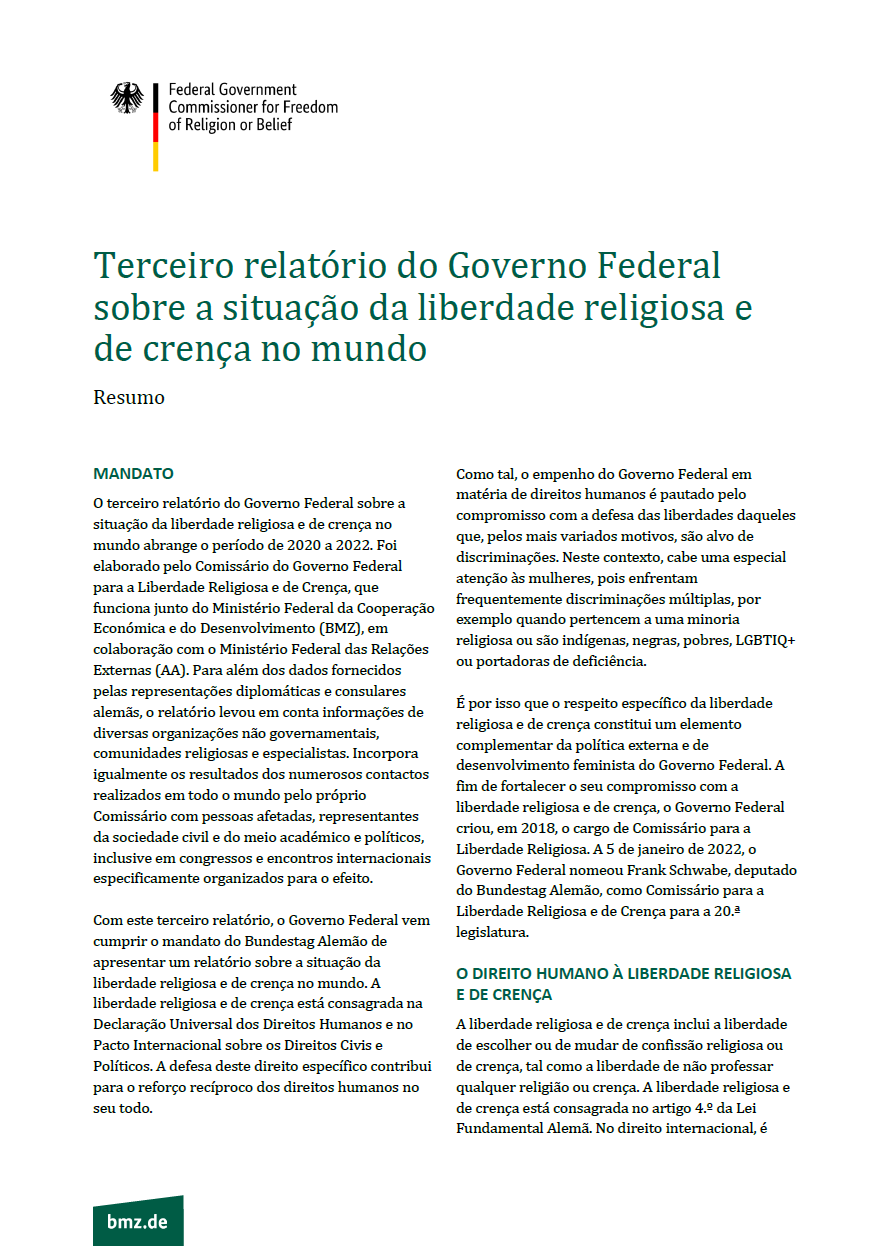Reporting timeframe 2020 to 2022 Third report by the German government on the global status of freedom of religion or belief
The situation of Muslim Uyghurs and other religious minorities in China is still poor. The German government notes with great concern the ongoing reports, including from the United Nations, regarding arbitrary incarceration.
In addition to a systematic country section with 41 chapters, the Report also includes two thematic chapters. In these two chapters the religious freedom of indigenous peoples and the contribution made by religions to sustainable development are covered. A decision adopted by the Bundestag (German parliament) requires the German government to report every two years on the status of freedom of religion or belief. This requirement is met by the report made by Frank Schwabe.
So far, the situation of indigenous peoples with regard to freedom of religion or belief has had a low profile in political and academic discourse. In making their situation a focus, the German government is treading new ground. A scientific assessment by Professor Heiner Bielefeldt and Dr Volker von Bremen, which is included with the Report, has supported the German government in drawing up its report. The assessment reaches the conclusion that the indigenous spirituality of a cosmovision – the way that indigenous peoples view the cosmos and how the world was made – and the ties between indigenous peoples and their traditional territories should be understood much more as part of freedom of religion or belief and should be more strongly enshrined in foreign and development policy. This approach is already an integral part of German development policy, for example in the form of measures for the conservation of tropical forests and activities aimed at promoting sustainable supply chains.
The second part of the focus chapter showcases the contribution that religions can make towards sustainable development. For example, in many places the only way that the Sustainable Development Goals (SDGs) can be achieved is by working with religious communities, which are a strong segment of civil society. The experience of numerous projects has shown that society as a whole can benefit from the commitment and know-how of religious communities, for example in healthcare, in peace work in crisis regions or in working with social minorities. This potential needs to be used in the future as well, with cooperation efforts being expanded wherever possible.
Prof. Heiner Bielefeldt (University of Erlangen-Nuremberg), Prof. Nazila Ghanea (United Nations Special Rapporteur on freedom of religion or belief) and Frank Schwabe, at the presentation of the Report at the Federal Press Conference on 22 November 2023.
Summaries
As at: 26.02.2024
